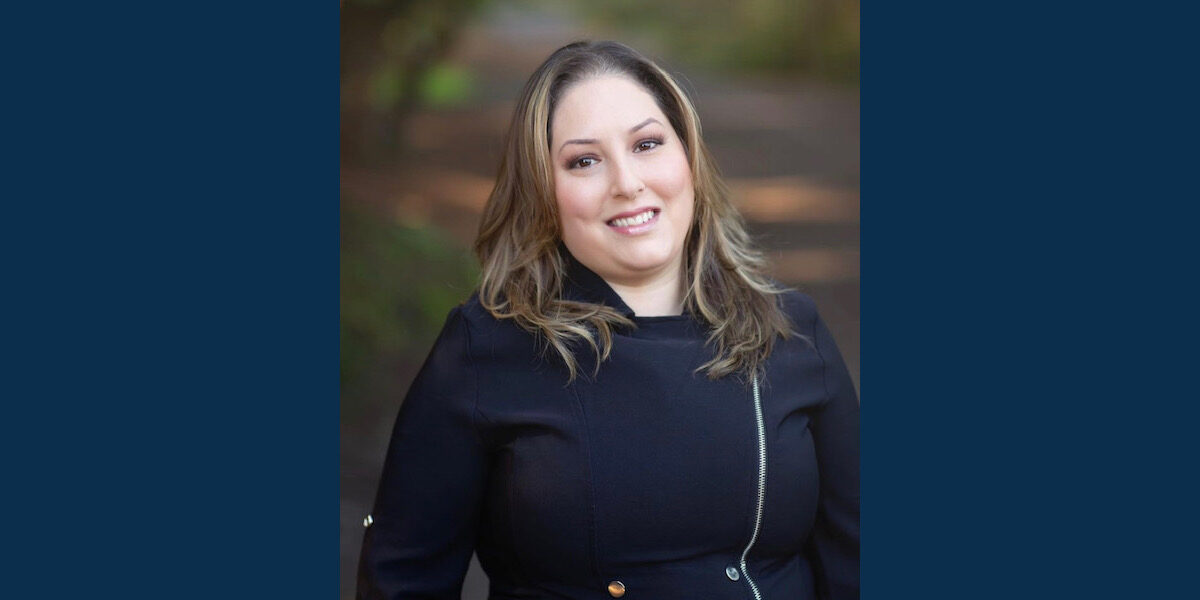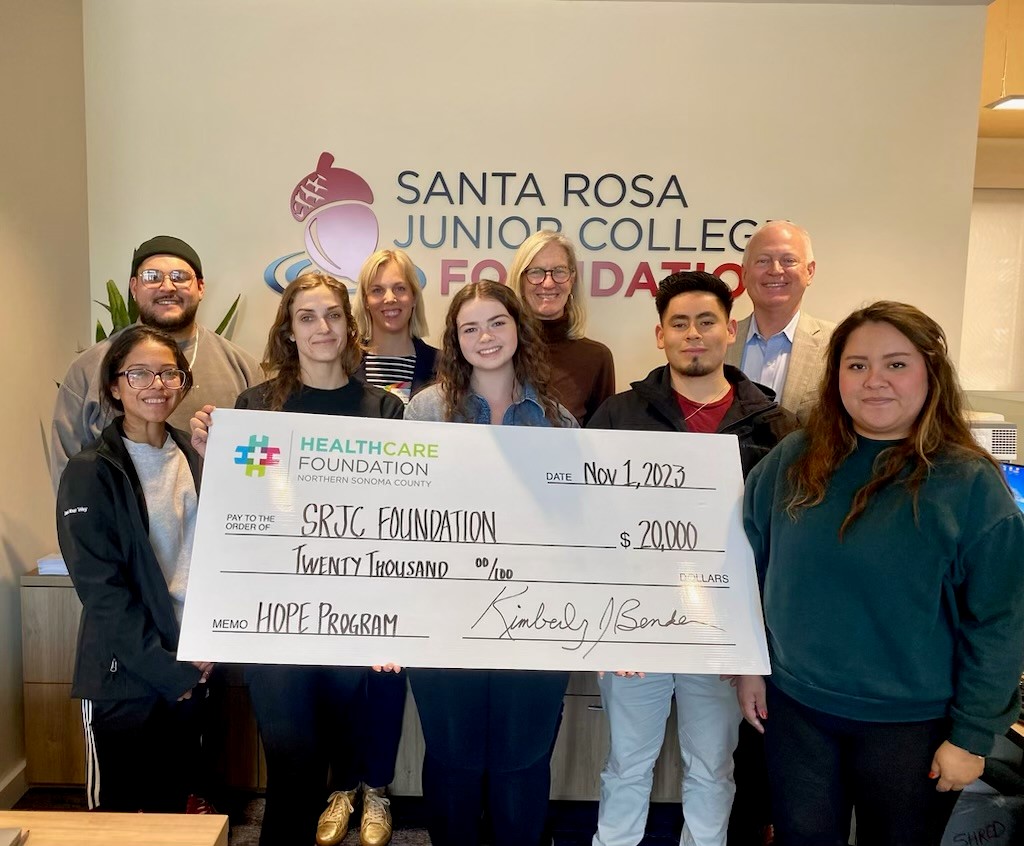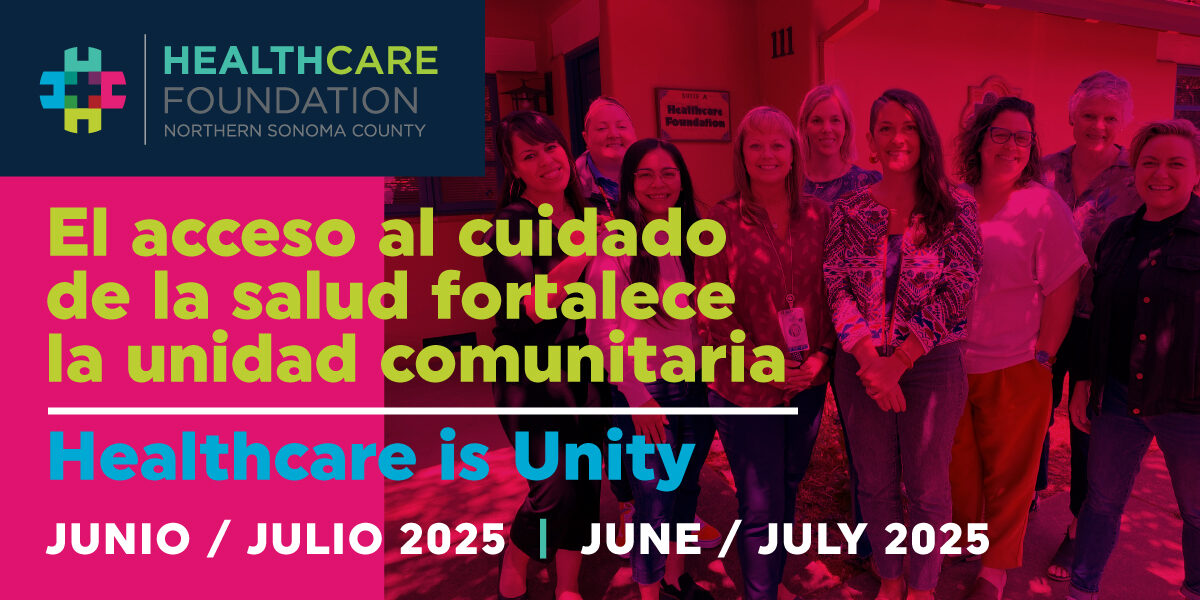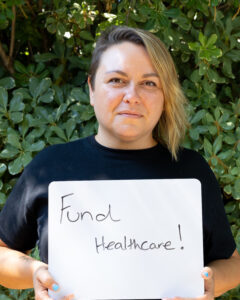

Spotlight on HOPE: Meet Scholarship Recipient Mia Valdez
5 min read. SRJC's HOPE program has allowed Mia Valdez to pursue her dream of becoming a nurse.
Mia Valdez is a single mother and re-entry student at Santa Rosa Junior College (SRJC). A Sonoma County native who left in her teens and returned as an adult, Mia has long wanted to be a nurse. As her daughter neared graduating from high school, Mia found she had the chance to pursue her dream and enrolled in the Certified Nursing Assistant (CNA) Program at SRJC. It was there that she heard about the HOPE program, applied, and got in the following year.
HOPE (Health Occupation Preparation Education) exists to ensure the success of underrepresented, low-income and first-generation students pursuing healthcare careers. HOPE scholarships, which were partly underwritten this year by a grant from the Healthcare Foundation, offer stipends to cover unanticipated costs, emergency funds, workforce development workshops, and more. HOPE is built on intervention strategies, support networks, and proven evidence-based models for student success, helping to make sure that participants persist and complete their certificate or degree or transfer to a four-year institution.
Mia kindly spoke to us recently about her experience with the HOPE program and the wide-ranging support she has received from counselors, staff and fellow students at the campus’s HOPE Center.
What drew you to the HOPE program at SRJC?
Preparing to get into the healthcare field is expensive. I wasn’t even part of the HOPE program yet, but when I visited them they were so amazingly kind. They provided me with a stethoscope and scrubs, and everything I needed to be successful in the CNA program. So I immediately applied to be a part of their program. One of the things I noticed right away was how safe I felt. Then I got to fully explore everything that was available there. At the beginning of each semester, they give us the opportunity to come in and pick what we need for our classes, whether it’s a binder or pencils or scrubs, whatever it may be. They have textbooks available to us. That’s really helpful, especially in my situation as a single mother going to school full-time and not working. They have great snacks. They have a kitchen. There’ll be days when there are full lunches set up for us, which is incredibly helpful when you’re in between classes and otherwise not eating. They also have things you may need like sanitary products. There are multiple studying spaces available, and computers, chargers, really anything you could think of.
“Applying for nursing school is not easy. Figuring out which classes to take is not easy. You could potentially feel very lonely [as a first-generation student] and not really know how to do these things. To have people to help guide us is a tremendous gift.”
Mia Valdez, SRJC HOPE Student
What HOPE Center services have you relied on?
The HOPE program has its own counselors to help guide us through health sciences. We have outstanding counselors. They help us through, whether we’re transferring or, like I did, we need to take a class at another college. I was able to do that because [HOPE Program Coordinator] Daisy [Cardenas] helped me to apply.
I also started using their tutoring services. There’s tutoring for every single major science subject that we have. You’ve talked to Meagan [O’Leary]. Meagan is our official tutor and is outstanding. She comes in and teaches everybody, it’s wonderful.
Beyond the services, the HOPE Center is a very safe and loving environment. School can be really hard, and the HOPE Center is the one place where I feel I can relax, let my guard down, laugh and joke. It’s a wonderful place to be. The students are very supportive of each other. When you finish a class, there’s a whole room where people have donated their notebooks, filled with notes for really hard classes, which is really helpful. I donated my flashcards from two of my classes. They also started a book lending program, so if you don’t have a book for a class they’ll give it out to you for the semester. And if they don’t have the book they’ll buy it for you. We all work together and have developed amazing relationships—not just with each other but with the staff.
Are there requirements for the program?
We have to meet with our counselors a certain number of times; we have to have an education plan; and we have to attend a workshop, but they’re very supportive in that. For example, as a CNA I have to renew my CPR training every couple of years. That’s usually about a hundred dollars, and that’s not cheap for me. I live off of financial aid. If you attend their workshop, they’ll give you a stipend for that. To be able to have that provided not only for free but by a wonderful CPR instructor, his name is Leo, is just the best. And outside of that Leo invites you to go and practice running codes with him where he works, so we can get a real experience of what that looks like in real life. It’s things like that. We get to practice what it’s going to look like and really develop our skills, before we even enter nursing school or work as a nurse. That just really helps move us forward.

It sounds like an exceptional opportunity.
There are all kinds of opportunities through the HOPE Center. In about a week we’re going to be doing Narcan training. There’s a weekly study group going on right now for the TEAS exam, which we have to take for nursing school, to help us be more competitive in the nursing program. And tomorrow I leave for Washington, D.C., to go to a conference. That’s not something I would normally be able to do. However, with the HOPE program, any workforce development program that you do, you’ll be allotted a one-time stipend. So I’ll be able to pay for my food in Washington because I’ll come back and write a paper about how that experience helped advance my career. The HOPE program is very supportive in helping us advance our careers. They make that a priority for us.
Would you say the HOPE program has made a significant difference in your ability to flourish in your studies?
It definitely has. Applying for nursing school is not easy. Figuring out which classes to take is not easy. You could potentially feel very lonely [as a first-generation student] and not really know how to do these things. To have people to help guide us is a tremendous gift. If you need something, they’ll work with you to figure out how to make it work. They’ve also done a wonderful job networking within our [wider] community to guide us to places that can help us get other things or experience that we need. They have a program that is almost like speed-dating but for mentors. They have amazing healthcare professionals of all different kinds come in. We spend a few minutes talking to each of them. Those encounters can develop into real mentorships, where you have somebody who can guide you down the path you want. Another great thing they do is take us on field trips all around California to visit different colleges. If we want to get a graduate degree or maybe transfer, we are able to see what the colleges look like, and what their nursing programs look like. It’s a great opportunity. They’re all about advancing our future in the healthcare world.
What made you want to pursue nursing, and what do you hope to be doing after SRJC?
I always wanted to be a nurse. My mom is a nurse. We were very poor. She started nursing school when I was a baby. When I was a little girl, my mom started taking me to work with her. I would spend every day I had off of school at the hospital with her. A friend of hers who was an OB-GYN took me with her when I was eight years old to watch surgery. That sounds crazy but I loved that. I knew at that point that I wanted to work in sexual and reproductive health. Later, I became a doula. I saw a lot of people who were marginalized and not getting proper care. We had terrible morbidity rates, specifically in the Bay Area, and I wanted to be able to provide further care to patients. I had the perspective of someone who has struggled in life and knows what it is to be dismissed or not get the kind of care that I think I deserve.
I had my daughter fairly young. I needed to spend her growing-up years helping her through school. But once I was able to get her to a safe spot, I decided to go back to school. I started the CNA program at SRJC, which allowed me to become an OB Surgical Tech. I do C-sections all day long and work with amazing surgeons and OB-GYNs. I saw things that I would like to work on within the healthcare system, and decided I wanted to be a nurse practitioner. Currently, I’m hoping to be able to transfer and do the BSN [Bachelor of Science in Nursing] program and then start the nurse practitioner program, so that I can really focus on patient-centered care.

Related News + Stories
Invest in Our Community
Your support is vital to our collective vision of eliminating health inequities in northern Sonoma County.
Donate



